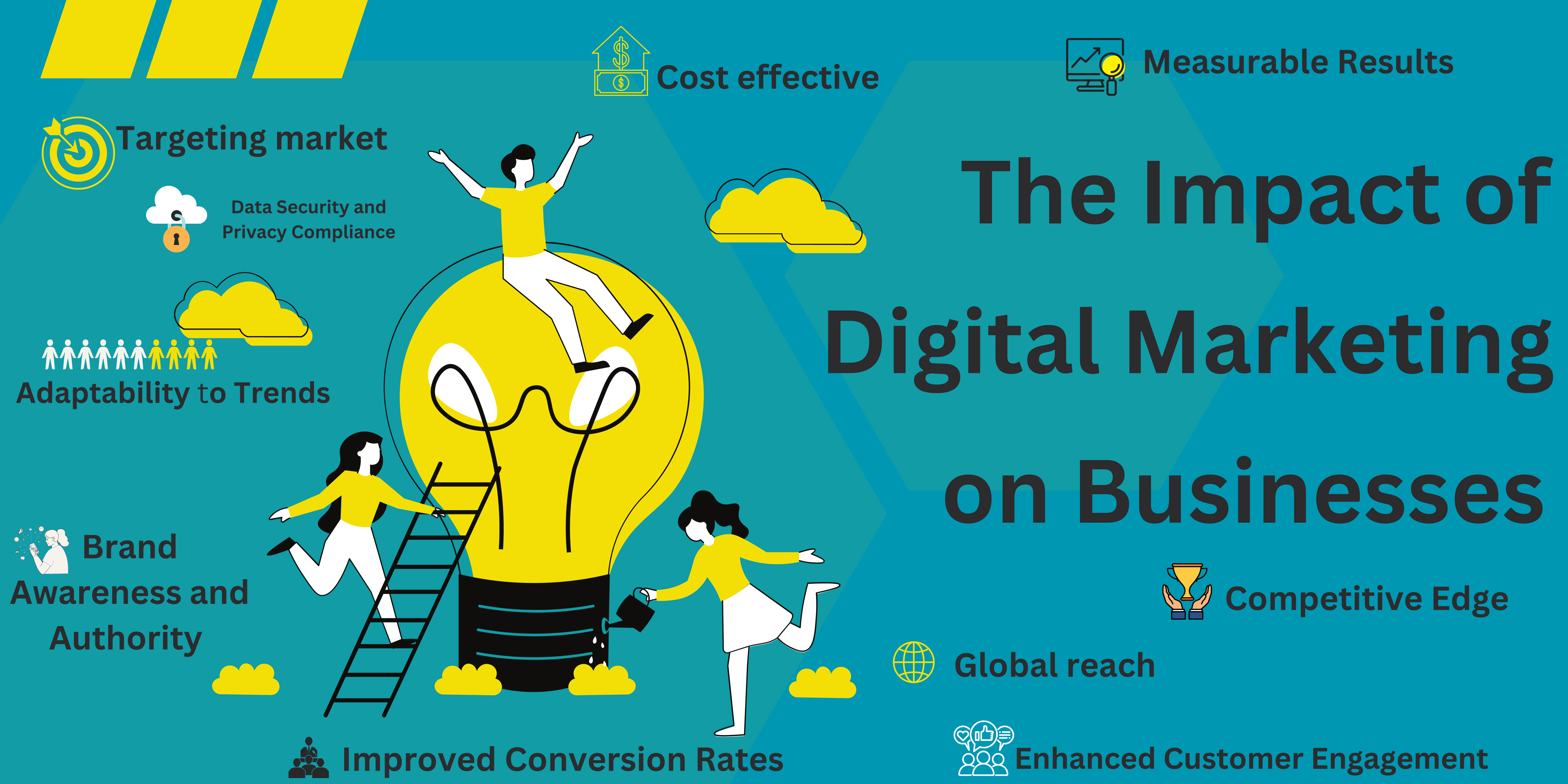In the rapidly evolving landscape of business, the emergence of digital marketing has revolutionized the way companies promote their products and connect with their target audience. This transformative shift has brought about numerous benefits and challenges. Let’s explore how digital marketing affects businesses.
1. Global Reach: Digital marketing enables businesses to reach a global audience. Through strategic online campaigns, companies can transcend geographical boundaries, tapping into new markets and expanding their customer base.
2. Cost-Effective Advertising: Compared to traditional advertising methods, digital marketing offers cost-effective solutions. Social media platforms, email marketing, and search engine optimization (SEO) provide affordable yet powerful tools for businesses to create impactful campaigns within budget constraints.
3. Targeted Marketing: One of the most significant advantages of digital marketing is the ability to target specific demographics. Through data analytics and consumer insights, businesses can tailor their marketing efforts, ensuring that messages resonate with the right audience.
4. Measurable Results: Digital marketing allows for real-time tracking and analysis of campaign performance. Businesses can access detailed metrics, such as website traffic, conversion rates, and engagement levels, helping them make informed decisions and refine their strategies for better results.
5. Enhanced Customer Engagement: Social media platforms and other digital channels facilitate direct interaction with customers. Businesses can respond to feedback, address concerns, and build a loyal customer base through personalized engagement, fostering trust and credibility.
6. Improved Conversion Rates: With targeted marketing and personalized content, digital marketing contributes to higher conversion rates. By understanding customer behavior and preferences, businesses can optimize their sales funnel, turning leads into loyal customers.
7. Brand Awareness and Authority : Establishing a strong online presence enhances brand awareness and authority. Content marketing, social media, and influencer collaborations contribute to building a positive brand image, which is crucial in a competitive marketplace.
8. Adaptability to Trends: Digital marketing allows businesses to adapt swiftly to market trends. Whether it’s a viral social media challenge or a popular hashtag, companies can leverage these trends to stay relevant and connect with their audience in real-time.
9. Competitive Edge: Embracing digital marketing provides a competitive edge. Businesses that effectively utilize online channels are more likely to stay ahead in the market, as they can quickly adjust strategies based on market dynamics and consumer behavior.
10. Data Security and Privacy Compliance: With the increasing importance of digital transactions and data exchange, businesses must prioritize data security and comply with privacy regulations. This includes securing customer information and adhering to laws such as GDPR.
Conclusion: The interdependence of digital marketing and businesses is unmistakably transformative. Xovient’s proficiency in IT and software development empowers businesses to confidently navigate the digital realm, fostering innovation and ensuring sustained success in an ever-changing digital landscape. The collaboration between effective digital marketing strategies and Xovient’s expertise provides a strategic advantage, enabling businesses to thrive and adapt to the dynamic challenges of the digital era.

